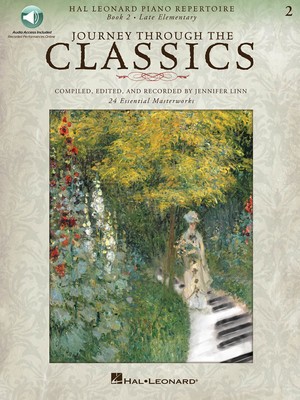When my children were younger and they were first trying new foods I remember how much of it would end up on the ground, on their faces, their hands and me! Scrunched up faces, food being spat back out — I’m sure some of it made its way into them! After this initial rejection of a new food, with a bit of persistence and a few subsequent tries, both of them seem to have acquired a taste for most things (they still seem particularly resistant to kale!).
So often we need to try things more than once to really decide if it is something we want more of. What’s that old sales adage about repetition? Third time’s a charm!
How often do you have a new beginner student arrive who already has a classical music vocabulary? A taste for classical music? At a recent professional development day, I overheard someone lamenting the fact that classical pieces for young beginners seemed a bit redundant these days as kids just don’t know them when they come for piano lessons. Whilst it may be true that many children are yet to discover and include classical music in their lives, it is certainly not redundant. And how lucky are we to be able to introduce them to it?
Including a broad range of classical literature from the early stages of piano lessons is important for a number of reason, but today I’ll share with you my top three:
- Phonetics are the foundations of speaking any language and classical music presents a framework for students to learn the phonetics of musical language.
- Don’t underestimate the power of familiarity with classical music. Often these melodies are heard in bite size pieces in the world around us. A jiggle on t.v., walking through a department store or in the sound track to a children’s movie. Learning to play these often familiar melodies helps connect children to the world around them.
- These melodies are mostly balanced/symmetrical (melody goes up, most likely it will come down!) and students, particularly young beginners, tend to respond to certain concepts like shape, contour of line (etc) with a deeper understanding.
With my young children we introduced foods one at a time, a little at a time. We certainly didn’t start with a whole roast meal! Similarly, with the classics, it is wise to choose a selection that is accessible and ‘easily digestible.’ We are lucky to have access to great books, like the Getting To… series that give students a broad range of repertoire to whet their appetite.
Even from the earliest stages, pieces are available in collections such as the Piano Adventures Classics books. Then moving to the late beginner there are collections such as the new Classical Piano Solos as apart of the Modern Piano Course by John Thompson or Journey through the Classics by Jennifer Linn. These are all progressively graded pieces that present a range of learning opportunities and a chance for us to broaden our students’ palates.

